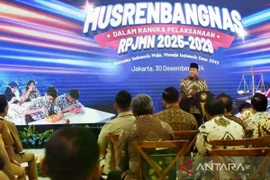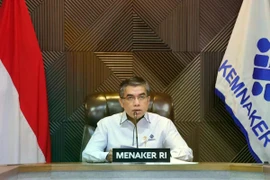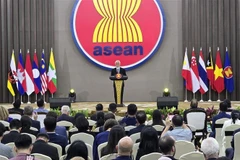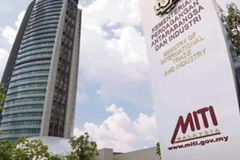Jakarta (VNA) – The Indonesian middle class has been shrinking over the past five years, the Jakarta Post reported on December 31.
However, the Indonesian government has affirmed that the economic situation remains under control, despite warnings from businesses and analysts.
Statistics Indonesia (BPS) defines the middle class as those with monthly spending of around 2.04 million Rp (130 USD) to 9.91 million Rp (over 627 USD), equivalent to 3.5 to 17 times the poverty line of 582,932 Rp in 2024.
Those with monthly spending between the poverty line and 1.5 times that amount are categorised as vulnerable to poverty, while those spending 1.5 to 3.5 times that figure are referred to as the aspiring middle class.
Referring to that classification, it is estimated that 17.13% of Indonesia’s population fell into the middle-class category in 2024, far below the share of 21.45% five years ago, according to BPS.
The drop has contributed to a rise in other categories, namely the aspiring middle class and those vulnerable to poverty.
Maintaining both the middle class and aspiring middle class groups is deemed critical as BPS said the two contributed over 81% of the country’s total consumption, making them important drivers of the economy.
Bank BCA chief economist David Sumual said that the shrinking middle class could be due to the fact that the government has been overly occupied with politics, which not only consumes its time, but also a considerable portion of state spending. In some cases, social spending has been disbursed late, which could be a factor in slowing economic growth.
Meanwhile, BPS data shows that the shrinking middle-class population had begun as early as the end of the COVID-19 pandemic.
The country’s economic output increased just 4.95% annually in the third quarter of 2024, according to BPS, falling below the 5% average rate it usually achieves each quarter.
There has also been a slowdown in household consumption, a key component of the national economy, which contributes over 50% to the gross domestic product (GDP)./.



























